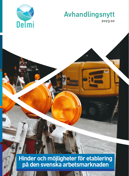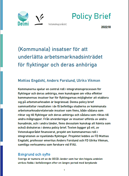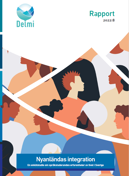A research team has conducted an impact evaluation of a labour market policy initiative aimed at newly arrived refugees with little or no formal schooling in Gothenburg of Sweden. The initiative, which consisted of intensive language training, supervised work practice and job search assistance, was a collaboration between the City of Gothenburg, the Swedish Public Employment service, and the Swedish property group Förvaltnings AB Framtiden. As the offer to participate in the initiative was randomly drawn, the researchers were able to compare the outcome of those who were offered to participate with those who were not offered. The evaluation shows that the higher intensity in the various parts of the intervention and that the intervention was introduced at an early stage contributed to both increased language skills and long-term effects on employment.
Overall conclusions
- It is possible to enhance the labour market integration for newly arrived refugees with little or no formal schooling with well-designed interventions.
- The study shows that the intensive and early intervention, whose stated objective was to increase the employment of new arrivals, led to long-term effects on employment. The effort also included more language training, which is shown to have positive effects on the participants' language skills.
- The positive employment effects are mainly driven by men, especially in the long term. A possible explanation could be that there was a lower percentage of women who accepted the offer to participate in the program. At the same time, the evaluation shows that there were very positive effects in the short term, both in terms of language skills and employment, for the women who participated.
- The analysis indicates that the effort was also self-financing and that other newly arrived refugees with little or no formal schooling could also benefit from a similar intervention.
About the Authors
The authors of the report are Matz Dahlberg, professor of economics at the Institute for Housing and Urban Research (IBF) at Uppsala University, Johan Egebark, PhD in economics and researcher at the Uppsala Center for Labor Studies, and Ulrika Vikman, PhD in economics and researcher at the Institute for Evaluation of Labour Market and Education Policy (IFAU).
The report is published on 13 December 2023.
Photo: Peter Van Der Meulen, Unsplash



